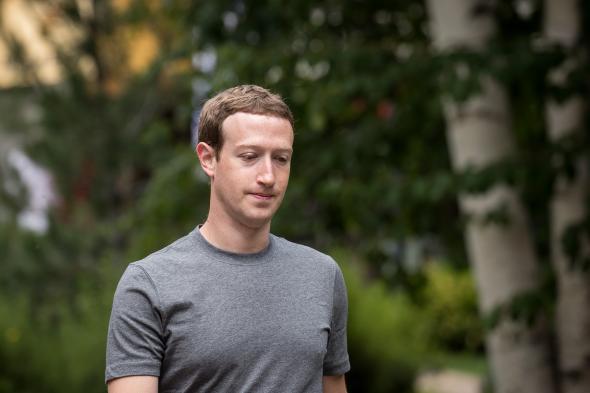As if it weren’t enough that Mark Zuckerberg is unfathomably rich and powerful, he has to go and mock all of our lame New Year’s resolutions every year by setting—and keeping—wildly ambitious ones. Recent “personal challenges” that he has fulfilled include learning Mandarin, building a personal A.I. assistant for his home, and visiting all 50 states.
This year, Zuckerberg’s goal is humbler. But it might be his most important and difficult yet. It is, in short: Do his job.
Here’s how Zuckerberg put it in a Facebook post Thursday:
The world feels anxious and divided, and Facebook has a lot of work to do – whether it’s protecting our community from abuse and hate, defending against interference by nation states, or making sure that time spent on Facebook is time well spent.
My personal challenge for 2018 is to focus on fixing these important issues. We won’t prevent all mistakes or abuse, but we currently make too many errors enforcing our policies and preventing misuse of our tools. If we’re successful this year then we’ll end 2018 on a much better trajectory.
Zuckerberg adds that he will bring “groups of experts together” to discuss these issues. He offers as an example the question of “centralization vs. decentralization.” Zuckerberg writes that he and others got into the tech business with the hope of empowering people (which might be rather generous, but let’s grant the point for the sake of argument). But he acknowledges that many people now worry that big tech companies such as his are instead helping to concentrate power (not to mention wealth) in the hands of a few. He wants to explore ways that Facebook could counter that trend.
These are the right kinds of questions for the CEO of Facebook to be asking. That said, they’re also the kinds of questions the CEO of Facebook should have been asking years ago instead of recklessly urging his employees to move fast and break things. And it’s worth noting that, with respect to the decentralization question, Zuckerberg’s first instinct is to turn to technology—he mentions encryption and cryptocurrency—to solve the problems wrought by technology. He may have toured all 50 states, but his mindset is still lodged in Silicon Valley.
Facebook did move fast, and much has been broken: online privacy, the political center, journalistic credibility, publishers’ business models, and the possibility of eating one’s lunch without photographing it, to name a few casualties. Now that he’s consolidated near-global dominance of social networking and online attention, Zuckerberg wants to pick up the pieces. Well, it’s better late than never. Right?
Zuckerberg is by most accounts a brilliant person, and by all accounts a wildly ambitious one. But thoughtfulness and self-criticism have not always been among his virtues. It’s easy to mock him for belatedly making a personal goal out of the sort of reflection that a more socially conscious leader would have been doing all along, just as many mocked his nationwide “listening tour” and all the cheesy photo ops that went along with it. It often looked more like political opportunism than a quest for understanding.
Unfortunately, that mockery won’t get us very far. Zuckerberg has ensconced himself as Facebook’s absolute ruler in perpetuity, and his company is likely to be a potent force in global media, politics, and communication for years to come. So let’s instead be relieved that one of the world’s most powerful people is gradually realizing that his impact on the world has not been entirely positive, and accepting responsibility for that. Let’s root for him to succeed in his goal—and help him along by continuing to confront him with the troubling consequences of what he has created.
